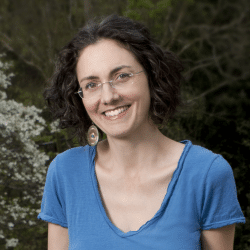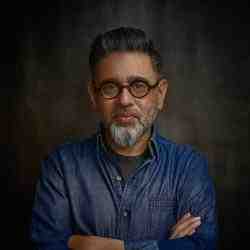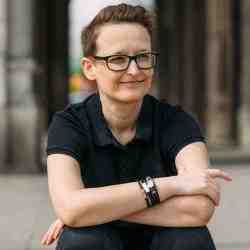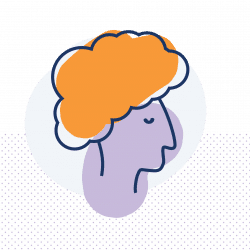Introduction
Sueli Camargo has developed a comprehensive professional training program for teenagers in São Paulo's slums, teaching them the personal presentation skills necessary to succeed in a competitive job market.
The New Idea
Sueli Camargo founded the Future Village Project, which aims to provide professional training to teenagers, beyond the vocational courses which focus on a specific skill set aimed at a certain industry or segment of the labor market. Her courses focus on the underlying knowledge base and broader analytical and critical thinking skills that cut across disciplines or particular employment opportunities. Sueli's idea evolved as she noticed that the objectives of most professional training courses were restricted to training for certain professions without relation to a more widespread concept of education and practical skills. She therefore designed a program to attack youth unemployment with four different emphases: technical formation, stimulation of logical thinking, awareness of one's behavior, and co-responsibility within the community.Started in 1995, the Future Village reaches 300 pupils a year from the 41 slums that form the neighborhood of Americanópolis in São Paulo, Brazil. Working with young people, most of whom have not completed elementary school and yet are on the verge of entering the job market for the first time, Sueli also addresses the intangible elements crucial to success in the job market, such as regular attendance, punctuality, responsibility, integrity, efficiency, initiative, and proper relations with superiors and colleagues at work. These qualities are often not part of the culture of people living in marginalized settings, but their absence only compounds the difficulties involved in searching for work, let alone operating effectively in a job. Sueli has also developed strategies and partnerships with local businesses to ensure that her students' new skills are tested in the labor market.
The Problem
Though Brazil has undergone sweeping economic changes over the last decade, much of the population struggles to eke out a subsistence living. More recently, an overvalued currency has forced the government to adopt very strict austerity measures that directly affect the standard of living at all levels of Brazilian society, but especially those below the poverty line. The leading newspaper, Folha de São Paulo, contends that there are 1.5 million unemployed people in São Paulo alone. Other recent research from the Inter American Development Bank suggests that 64 percent of Brazilians are afraid of losing their jobs within the year. Such concerns are all the more acute in areas like Americanópolis, known as one of the most crime-ridden neighborhoods of São Paulo. From rape, teenage pregnancy, and domestic violence, to rampant drug abuse, prostitution, and juvenile delinquency, Americanópolis is particularly plagued by social ills common to inner-city living in "megacities" around the world. It is a neighborhood with few support structures and fewer opportunities for young people to build a solid foundation for future employment. Youth in Americanópolis dream of achieving more than their parents, who came from the northeast of Brazil to São Paulo to work as bricklayers or in construction and often go hungry. Their children seek other role models, to learn cooperation and personal responsibility. Sueli's research shows that her target population is woefully unprepared for the job market. Of 300 students tested, 80 percent do not know how to write a story with more than five sentences; 98 percent cannot divide, 94 percent cannot multiply, 42 percent cannot subtract, and 22 percent cannot add.The list of skills considered necessary for survival in the 21st century includes general abilities readily transferable from one job to the next, fluency in two or more languages, basic computer knowledge, and a solid educational foundation. Providing these skills in a country where the majority of the population do not complete high school is among the most daunting challenges facing Brazil. Most standard courses in the schools still use learning by rote as a primary method of pedagogy, disregarding the daily changes and demands of an increasingly challenging job market.
The Strategy
Sueli works to reduce the number of unemployed by tying education to work experience and values, believing that academic rehabilitation differs from traditional lesson plans. One of Sueli's innovations is to screen her students based on what they learned in school rather than on the grade level they attained. The method of Future Village is to offer professional training, complemented with basic courses in mathematics, language, and writing, to stimulate necessary independent reasoning skills. Sueli then teaches students the requisite personal and professional skills basic to surviving in the modern labor market. Her students learn not only what is required for one task, but gain a general level of flexible knowledge, which will remove obstacles to professional performance. By learning how to cooperate and share responsibility, children are better trained for their working lives. To test and evaluate the progress of the skill development by the young people, Sueli has created a peer and self-assessment methodology, which is carried out by the project's pupils and monitored by the teachers. Each pupil is evaluated and given the necessary critical feedback, thereby gaining awareness of how others perceive their attitude. To place the graduates of her program, Sueli has been lobbying local business entrepreneurs to offer training internships that could lead to full-time employment for Village pupils.Beyond the skills taught, Future Village is also changing the system that prepares young people for work. Aldeia is forming a partnership with the Center for School/Company Integration, an organization responsible for placing trainees in the labor market. Since the only officially recognized internships in Brazil are for students from college or technical level who work in business, Sueli is also working with several nongovernmental organizations to fight for legislation to increase internship opportunities. Through a partnership with Vitae Foundation, more than 40 different software programs are being developed which will enhance the students' cognitive abilities. Sueli has also formed partnerships with the Employment Union of the state of São Paulo to get its support for equal pay for women, and with the State Secretary of Employment and Work.
The Person
Sueli comes from a background of social change and believes that it is possible to alter longstanding perceptions of reality. She demonstrates her entrepreneurial capacity by having established relationships with the state and city governments envisioning how to support internships for the Aldeia students.




